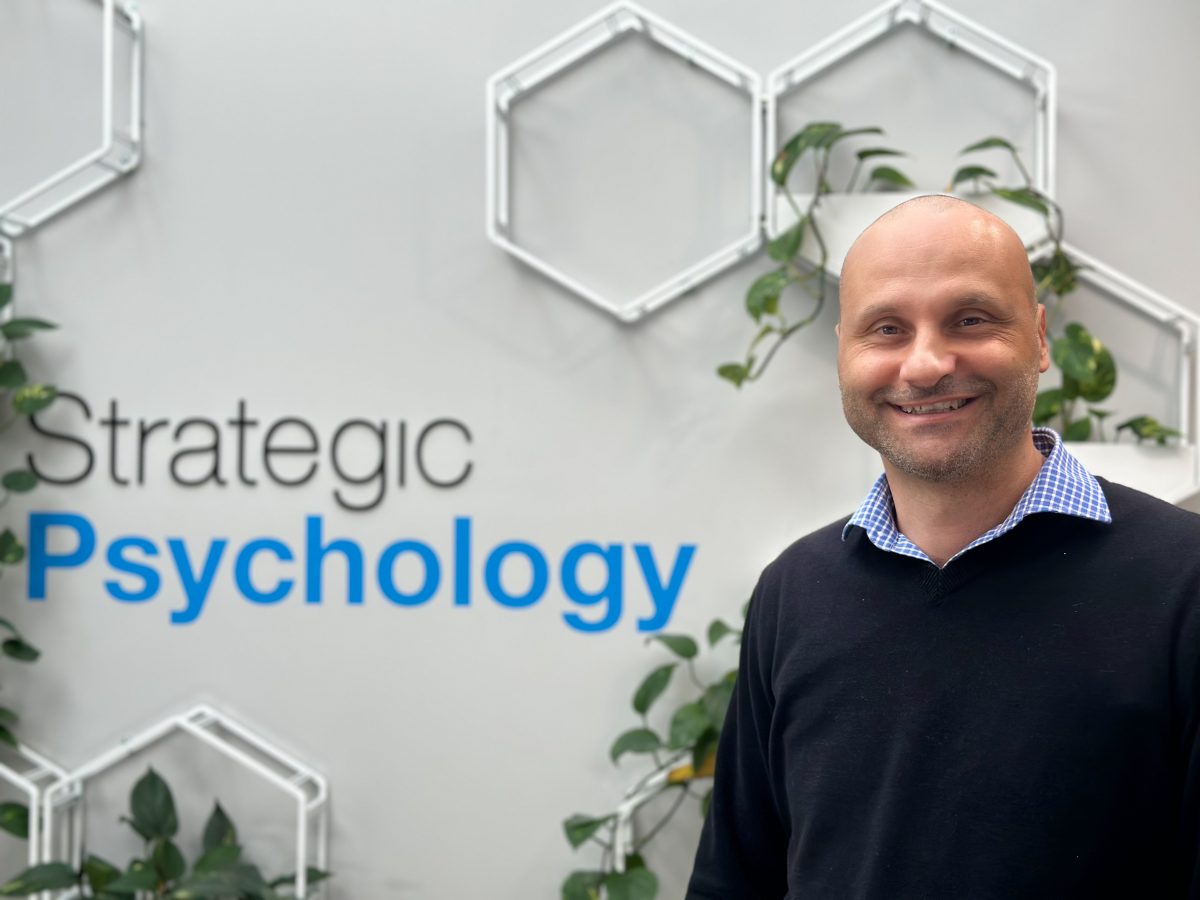
Clinical psychologist Nesh Nikolic has adopted a holistic approach to helping people manage their mental health difficulties. Photo: Strategic Psychology.
For many of us, life can seem like a constant battle – a tug-o-war with our feelings, thoughts or emotions, often in situations we have little or no control over.
And the effort we put into trying to win the war against our anxieties and fears can often prevent us from moving forward and living happy and fulfilling lives.
One Canberra psychologist has adopted a holistic way of helping people manage their mental health difficulties based on mindfulness strategies, awareness and psychological flexibility, and a gentler way of approaching life.
Strategic Psychology managing director and clinical psychologist Nesh Nikolic is passionate about Acceptance and Commitment Therapy (ACT) which offers a simple and modest approach to gaining health and wellbeing at an emotional, physical and mental level.
The host of the Better Thinking podcast, Nesh says one way many people can reduce their suffering is by “letting go of the rope” and taking a break from their battle with the anxiety that may be controlling their lives.
“Think of life’s struggles as a tug-o-war, where you’re holding the rope on one side and your anxiety monster is holding the other. In the middle, there is a hole. On a good day, you will pull the monster into the hole and win the fight. Other days the monster will be stronger and pull you in,” Nesh explained.
“If you continue to hold onto the rope when you want to do something, like go out for coffee with friends, you could find yourself struggling with the anxiety monster the whole time.
“What you could do, is open your hand and release the rope. The anxiety monster is still there, but while you’re not struggling with it, you can enjoy that quality time with your friends.”
Nesh says people can learn how to make space for their anxieties and, over time, they will learn to live with them.
“Anxieties often don’t go away, they’re in your life, but they don’t have to be controlling your life,” he said.
“I encourage clients to let those feelings be and to switch off the struggle switch sometimes.”
Nesh believes it helps to “make space” for the scary feelings that cause anxiety and give them “permission” to be there rather than trying to avoid them.
While his clients still face challenges, by using the ACT techniques, they are taking steps toward living meaningful and engaging lives.
With more and more people struggling with mental health issues following the COVID pandemic and a string of natural disasters, many psychologists are embracing the transdiagnostic model which can work alongside or instead of traditional treatments.
Nesh says it’s crucial to start looking at humans from a different perspective and to understand that all humans have attributes and characteristics that make them individuals.
He says giving people a label can actually be an insult and make some people think they are abnormal or defective.
“As a psychologist, I am trying to move away from sharing a diagnostic label by looking at how someone’s context can better explain why they are feeling the way they do. While some people might gain some initial relief from a diagnosis, labels can at times inadvertently suggest there is something wrong with how they feel.”
Nesh says it can be harmful to hold onto labels that reinforce thoughts like ‘I am broken’, ‘I am defective’ and ‘I will always have a mental health disorder’.
If someone experiencing anxiety can understand that what they’re feeling is normal or expected in a certain situation and can learn to accept those feelings, Nesh says there might be no need for a label.
“It’s how we frame those feelings. By seeing anxiety or fear from a different perspective, we can normalise it,” he said.
Removing labels can sometimes allow people to reflect and re-examine their lives so they can make conscious and mindful decisions about how they want to live.
“There are times clients are genuinely taken aback by this approach because, once they believe they have a mental illness, they really struggle to move on with their lives,” Nesh explained.
“However, once people appreciate they have choice in how they want to live their lives, they can experience a greater feeling of self-efficacy and can refocus on their values – who and what’s important and meaningful to them.”
He says Strategic Psychology’s approach to mental health treatment is compassionate and collaborative and often leads to significant improvements in mental wellbeing for clients.
“It’s really important that people continue to focus on improving and enriching their lives. That might be by reading books, listening to podcasts or seeing a psychologist, but I think the underpinning of all that is to find out what works for you,” Nesh said.
“If we can focus on letting go of what we can’t control and reduce our avoidance of what we don’t like, resilience will come.”
To find out more about Strategic Psychology, jump onto their website and book an appointment today. With a growing team of clinicians, the practice is accepting new clients and initial consultations may be available within three weeks.





















